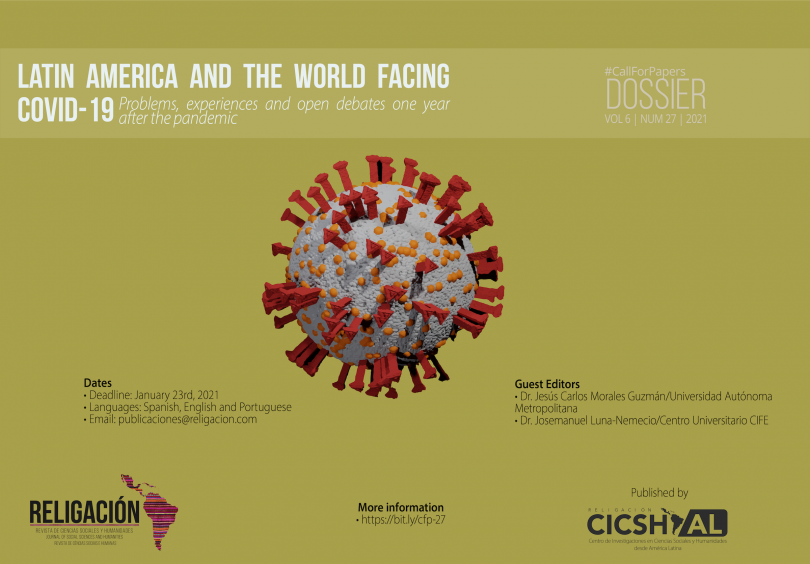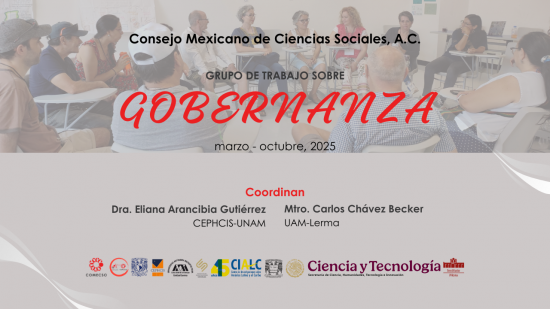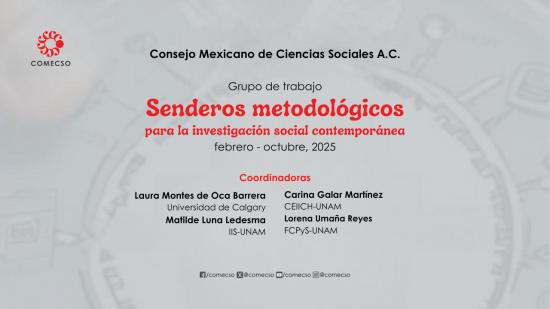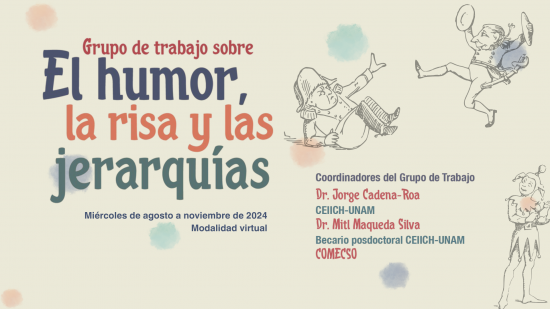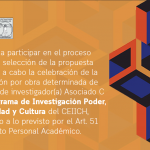Latin America and the world facing COVID-19
CallForPapers
Dossier
Latin America and the world facing COVID-19: problems, experiences and open debates one year after the pandemic
Guest Editors
- Dr. Jesús Carlos Morales Guzmán | Universidad Autónoma Metropolitana, México
- Dr. Josemanuel Luna-Nemecio | Centro Universitario CIFE, México
Dates:
- Deadline: January 23rd, 2021
- Languages: Spanish, English, Portuguese
- Guidelines and article templates: here
- E-mail: publicaciones@religacion.com
The high degree of risk represented by the current pandemic of COVID-19 caused by the coronavirus SARS-CoV-2 justifies the importance of carrying out studies that reflect critically on the problem in relation to the elements that originate it and that contribute to a globalization and worsening of its lethality and contagion. The COVID-19 has represented the condition of possibility that has produced, in a collateral way, the creation or worsening of a series of vulnerabilities and risks at the level of the economy, democracy, human rights, sustainability, education, and life itself.
In fact, the beginning of the second decade of the 21st century inaugurated an event that, without a doubt, will mark the historical course of the years to come and will change the course of society’s scientific approach. Since the beginning of the year 2020, humanity has suffered worldwide the consequences of the COVID-19 disease caused by the SARS-CoV-2 coronavirus, since not only Asian or European countries have been territories where the COVID-19 pandemic has spread, but also in the territories of Africa and America this disease has spread, so for some specialists we are facing a huge challenge that the pandemic has imposed on us and is testing the research paradigms within and outside the social sciences. For this reason, we consider it necessary to advance in the development of research that seeks to address the complexity and social risk of the COVID-19 pandemic, pointing out that, without a doubt, it is a phenomenon that responds to the conjunction of multiple determinations that must be addressed from a theoretical, methodological and epistemological perspective based on critical thinking and complexity. Hence, Religion. Journal of Social Sciences and Humanities is considered as an academic space and a place for reflection on this subject.
The Dossier «Latin America and the world facing COVID-19: problems, experiences and open debates one year after the pandemic» is intended to serve as a reference and starting point to reflect on the various tensions, experiences and reflections represented by the COVID-19 pandemic that began in early 2020, with a general confinement throughout the continent from March, and that, by the series of social dimensions and impacts it has had, will undoubtedly redefine the course of development of capitalism and humanity throughout the twenty-first century. In this context, the current call seeks to bring together scientific studies and academic reflections, both theoretical and empirical, which will give an account, from different imaginaries, realities and territorial, economic and political contexts, of the series of contradictions that the COVID-19 has revealed or exacerbated as part of the current crisis of civilization.
In the same sense, the present Dossier intends to be a space to gather the findings of those critical researches that have focused on making a balance on the institutional administration and social management of the pandemic by the diverse national States. It is known that the COVID-19 disease, generated by the new coronavirus SARS-CoV-2, has meant a series of risks, vulnerabilities and uncertainties in the economic and social field. Given this panorama, social sciences can be a privileged angle for the understanding and interpretation of such meanings and contribute to the search for a way out of the current context. Indeed, we consider that social research is a strategic place to study, reflect and understand from a scientific viewpoint, the multiple concatenations present in the current and historical complexity of the pandemic.
In Latin America, the way in which the various governments have carried out the economics and policy of COVID-19 has been marked by polarization; on the one hand, countries like Mexico have deployed policies to raise awareness of health care and promotion through measures of isolation, healthy distance and hygiene; while the State in other nations, such as Peru and Argentina, deployed strategies of persecution, criminalization and punishment through public forces to try to reduce the number of COVID-19 infections.
In a parallel way, the current pandemic has put on the table the series of scenarios of risk and vulnerability that for more than three decades neoliberalism produced in Latin America, intensifying the social effects of poverty, inequality, authoritarianisms, the dispossession and privatization of the social means of production and subsistence in favor of a ruling class that today has sought to reconfigure the pandemic into a lucrative branch for the accumulation of capital and physical and psychological domination of humanity.
For these reasons, Religación. Journal of Social Sciences and Humanities, in the form of this Dossier, seeks to provide a space for various critical voices on the COVID-19 pandemic to be heard. We expect to receive contributions from various fields of Social Sciences and Humanities that present the results of frontier research, which in a transverse, transdisciplinary and complex way, take as their axis one of the following thematic areas, which are not limited to the presentation of manuscripts, but seek to synthesize the multiple challenges and areas of opportunity that the current pandemic represents for research from the social sciences and humanities.
- Governance, administration and social management of the pandemic
- Economics and politics of COVID-19: poverty, inequality and social justice
- Crisis of democracies and human rights
- Challenges to sustainability in times of pandemic
- Territory and society: configurations and spatial determinations of the COVID-19.
- Building citizenship, diversity and culture
- Gender gaps, inequalities and violence in pandemic contexts
- Education and Information, Communication and Knowledge Technologies for Digital Learning
Contributions will be received in Spanish, English or Portuguese. Articles must comply with the editorial policy and publication rules of the journal (available at http://revista.religacion.com/index.php/religacion/guidelines. A peer review system is used for the selection of articles.
Te puede interesar

Publicaciones del COMECSO
Roberto Holguín Carrillo - Ene 08, 2025Este espacio reúne la gran mayoría de la producción editorial de nuestra asociación. A lo largo de casi cinco décadas,…

Convocatoria a solicitar sede del X Congreso Nacional de Ciencias Sociales
Laura Gutiérrez - Mar 12, 2025Con el objeto de presentar a la comunidad académica los resultados de investigación en Ciencias Sociales y contribuir a la…
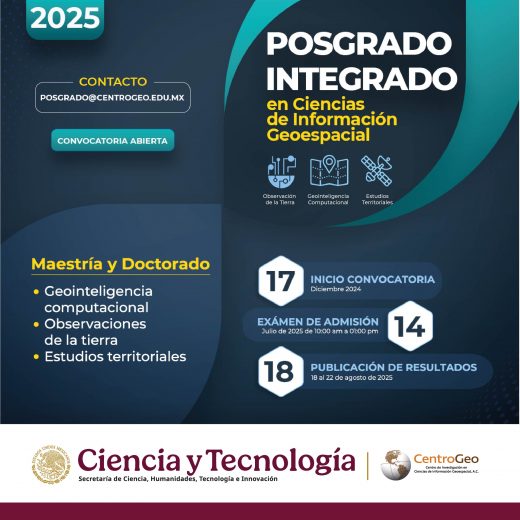
Posgrado Integrado en Ciencias de Información Geoespacial
Laura Gutiérrez - Mar 12, 2025El Centro de Investigación en Ciencias de Información Geoespacial (CentroGEO) Programa Posgrado Integrado en Ciencias de Información Geoespacial Convocatoria abierta…
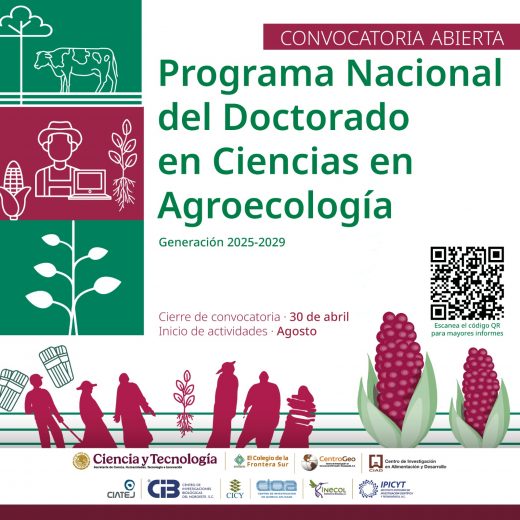
Doctorado en Ciencias en Agroecología
Laura Gutiérrez - Mar 12, 2025Los Centros Públicos de Investigación: El Colegio de la Frontera Sur (ECOSUR), el Instituto de Ecología A.C. (INECOL), el Instituto…
